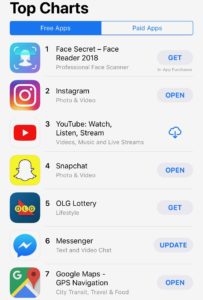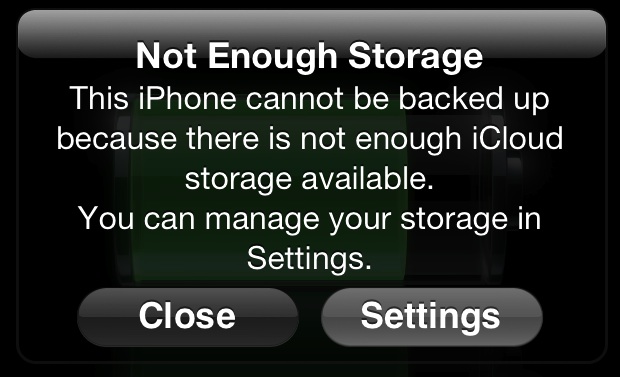Matt Rosoff’s article examines the decline in the number of users the social media outlet has experienced due to recent sandals. While Facebook has been experiencing a decline, it still manages to have 2.23 billion monthly users. Facebook owns many other social media platforms such as WhatsApp, Instagram and Messenger which has helped them overcome their recent struggles as seen in Apple’s rankings of most popular free applications. Over the recent
experienced due to recent sandals. While Facebook has been experiencing a decline, it still manages to have 2.23 billion monthly users. Facebook owns many other social media platforms such as WhatsApp, Instagram and Messenger which has helped them overcome their recent struggles as seen in Apple’s rankings of most popular free applications. Over the recent
year, Instagram has become a platform that has generated a high income. Instagram has grown 204% year over year due to the number of advertisements which can be seen while using the application. Sponsored advertisements may have to be  incorporated into WhatsApp and Messenger as another source of income in order to help save Facebook.
incorporated into WhatsApp and Messenger as another source of income in order to help save Facebook.
Looking more in depth at the recent Pew survey which included over 3,400 U.S. Facebook users, it concluded that millennials are either deleting the app, taking a break from it or many are simply adjusting their privacy settings. Facebook users are choosing to adjust their privacy settings due to the recent Cambridge Analytica event which breached users’ personal information. Moreover, Facebook is seeing a decline in users as Russian operatives also used Facebook to spread false news to influence the 2016 presidential elections.
Although there is a continued growth of Facebook users overseas, Facebook is seeing a major stall in North American users which included myself not so long ago. Before I engaged with the text, the Cambridge Analytica and the presidential scandal were not among my reasonings to delete Facebook, but I did find myself among  one of the 42% users who needed to take a break. Every so often I choose to delete social media apps from my phone such as Facebook, Instagram or Snapchat which allows me to disconnect and just be present. After reading Rosoff’s article, I may reconsider removing myself from social media more often. I deleted my Facebook account for over a year but I chose to reactivate my account for a few reasons. Facebook is a great application that allows me to keep in contact with previous teammates, family members and friends living all over the world. Not having a Facebook account often left me on the outside of the team’s Facebook page and multiple group projects as Messenger was the preferred means of communication. I now use the app mainly to keep up with my mom’s blog of her new puppy because I do not have the liberty of watching her grow back home in Montreal. Facebook privacy may have its downfalls, but it allows me to post albums and adjust the privacy settings so only I can see them. I enjoy this
one of the 42% users who needed to take a break. Every so often I choose to delete social media apps from my phone such as Facebook, Instagram or Snapchat which allows me to disconnect and just be present. After reading Rosoff’s article, I may reconsider removing myself from social media more often. I deleted my Facebook account for over a year but I chose to reactivate my account for a few reasons. Facebook is a great application that allows me to keep in contact with previous teammates, family members and friends living all over the world. Not having a Facebook account often left me on the outside of the team’s Facebook page and multiple group projects as Messenger was the preferred means of communication. I now use the app mainly to keep up with my mom’s blog of her new puppy because I do not have the liberty of watching her grow back home in Montreal. Facebook privacy may have its downfalls, but it allows me to post albums and adjust the privacy settings so only I can see them. I enjoy this  feature because iCloud doesn’t have the capacity to hold all of my pictures and I’m too cheap to pay for extra storage in all honesty. The text forced me to be more critical and think about what I am posting on social media because I now know that my photos aren’t only seen by me and that others may have access to them as well. Overall, I still enjoy using Facebook and being able to interact with friends and family through one simple click or like and I will think twice about posting something on Facebook in the future.
feature because iCloud doesn’t have the capacity to hold all of my pictures and I’m too cheap to pay for extra storage in all honesty. The text forced me to be more critical and think about what I am posting on social media because I now know that my photos aren’t only seen by me and that others may have access to them as well. Overall, I still enjoy using Facebook and being able to interact with friends and family through one simple click or like and I will think twice about posting something on Facebook in the future.
For the purpose of this assignment, I chose to create a mind map to summarize Rossoff’s article. I used Canva this time around which is similar to Piktochart which I used for the first multimedia artifact. I found Canva to be more user friendly and easier to navigate. I had access to a mouse and a large computer screen which I believed lessened my frustrations. Having the mouse allowed me to center objects somewhat better than Piktochart which relieved some of my OCD for small details as such. Overall, it was a much more positive experience creating this mind map.

